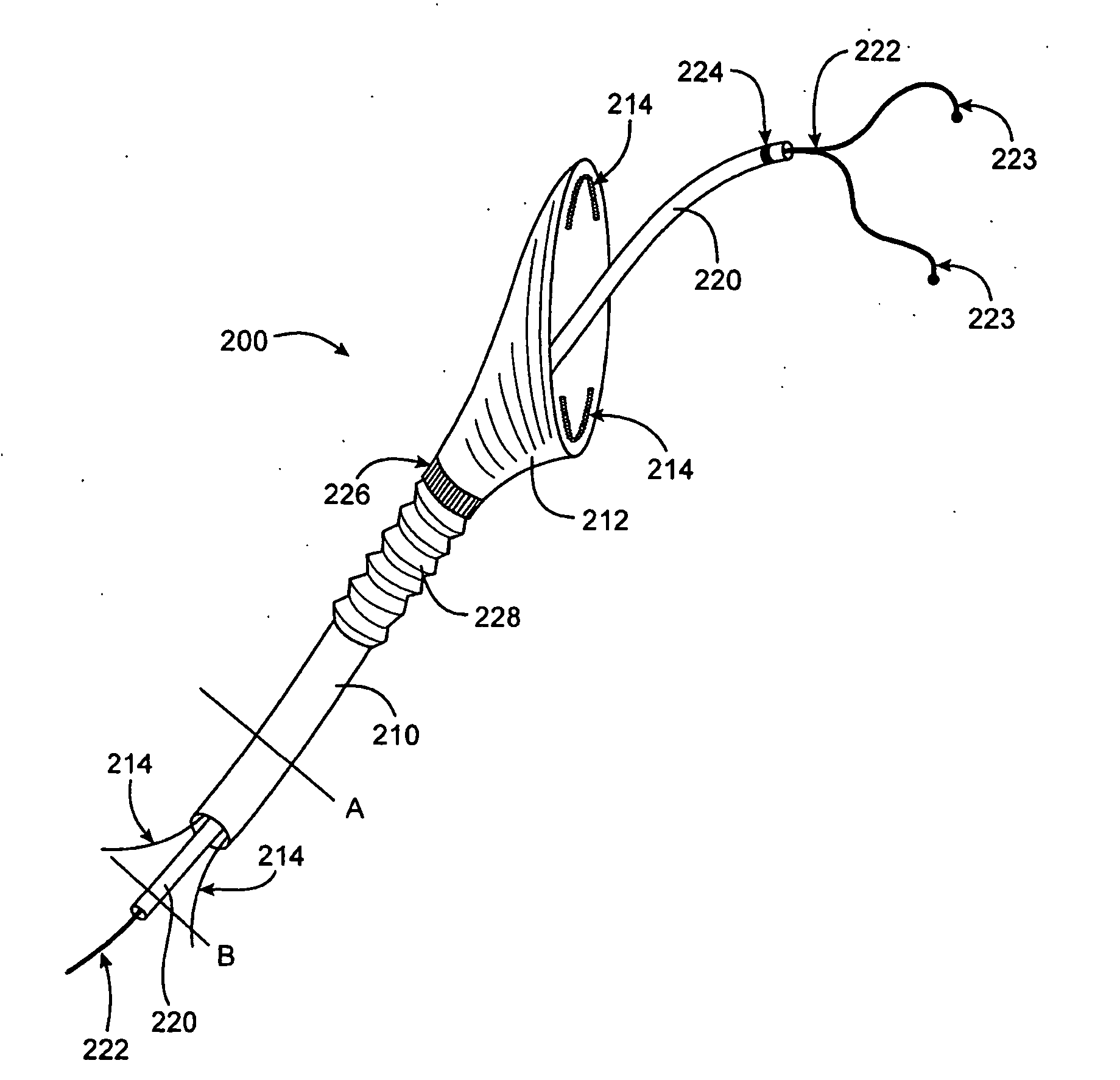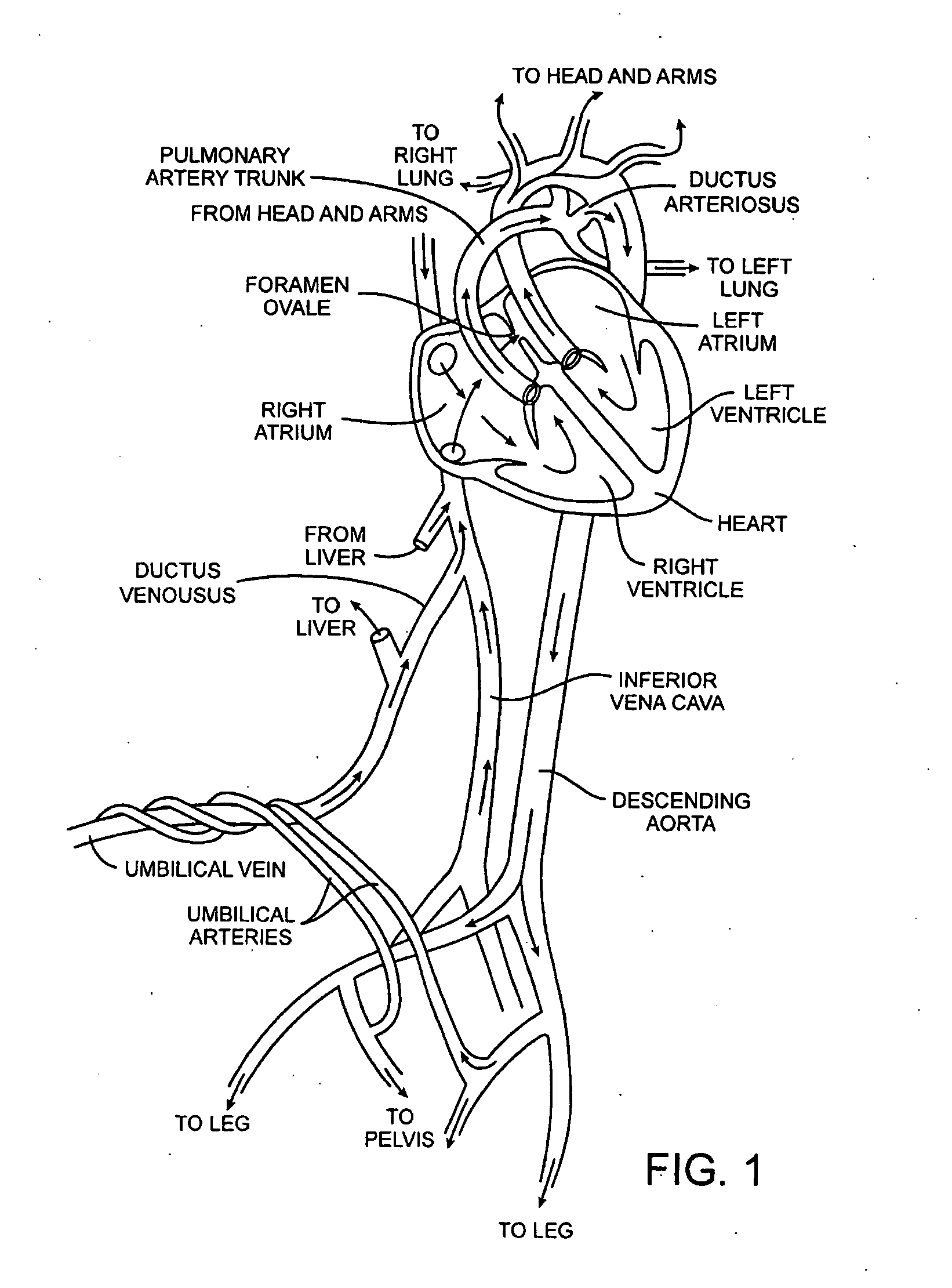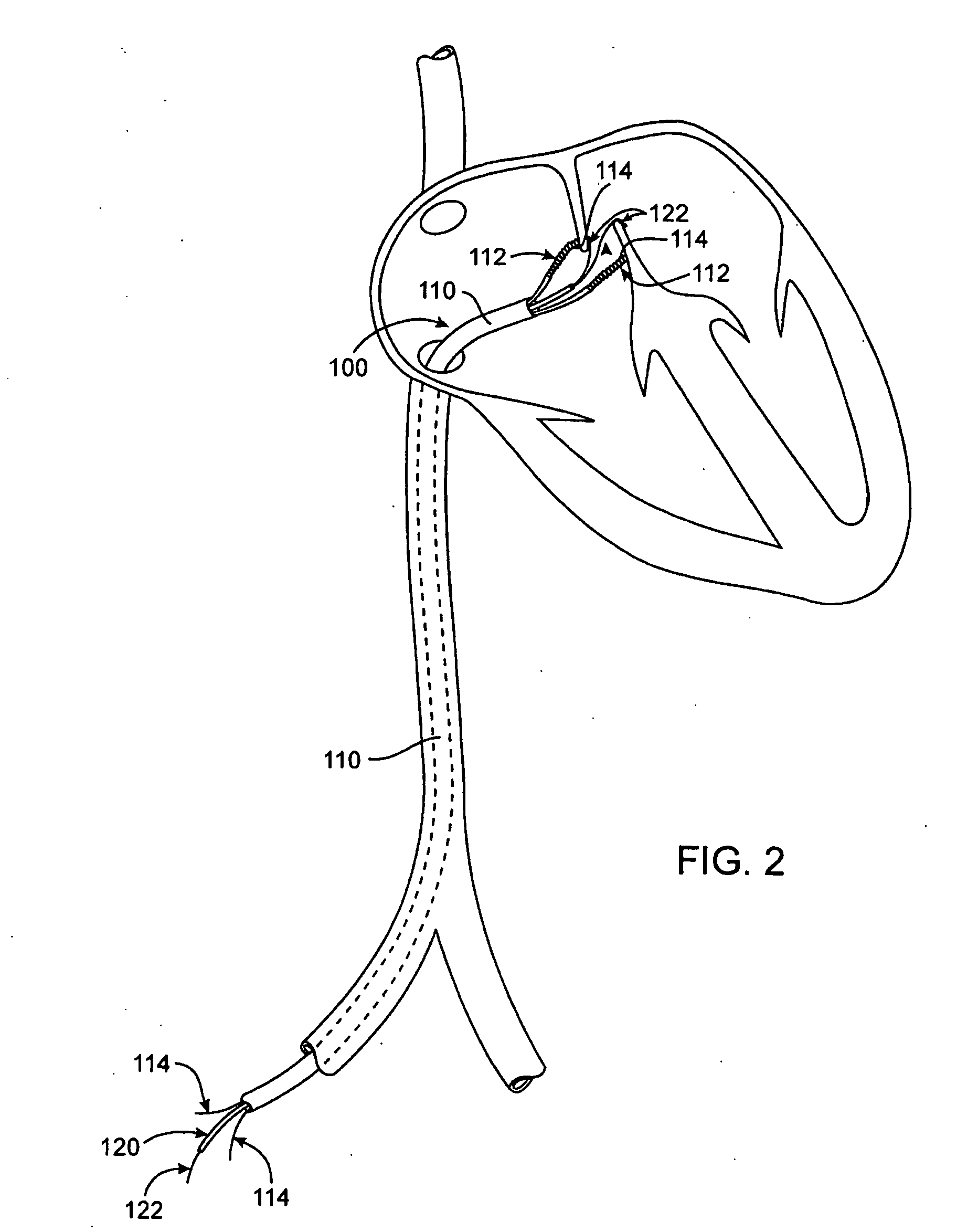Energy based devices and methods for treatment of patent foramen ovale
a technology of energy-based devices and treatments, applied in the field of medical devices and methods, can solve the problems of still having one or more small gaps or openings
- Summary
- Abstract
- Description
- Claims
- Application Information
AI Technical Summary
Benefits of technology
Problems solved by technology
Method used
Image
Examples
Embodiment Construction
[0050] Devices and methods of the present invention generally provide for patent foramen ovale (PFO) treatment through application or removal of energy. Methods involve advancing a catheter device to a position in the heart for treating the PFO and applying energy to (or removing energy from) tissues adjacent a PFO to substantially close the PFO acutely. Terms such as “substantially,”“acutely,” and “tissues adjacent the PFO” are defined above in the Brief Summary of the Invention. Devices of the invention generally include a catheter device having a proximal end and a distal end and at least one energy transmission member adjacent the distal end for applying energy to or removing energy from tissues adjacent the PFO.
[0051] As mentioned above in the background section, FIG. 1 is a diagram of the fetal circulation. The foramen ovale is shown, with an arrow demonstrating that blood passes from the right atrium to the left atrium in the fetus. After birth, if the foramen ovale fails to...
PUM
 Login to View More
Login to View More Abstract
Description
Claims
Application Information
 Login to View More
Login to View More - R&D
- Intellectual Property
- Life Sciences
- Materials
- Tech Scout
- Unparalleled Data Quality
- Higher Quality Content
- 60% Fewer Hallucinations
Browse by: Latest US Patents, China's latest patents, Technical Efficacy Thesaurus, Application Domain, Technology Topic, Popular Technical Reports.
© 2025 PatSnap. All rights reserved.Legal|Privacy policy|Modern Slavery Act Transparency Statement|Sitemap|About US| Contact US: help@patsnap.com



